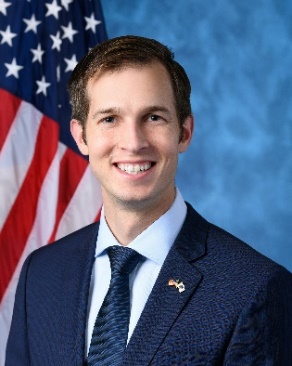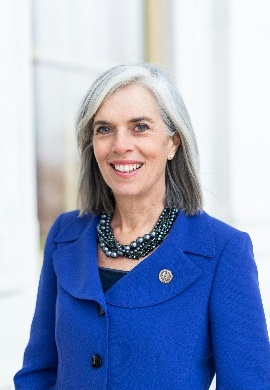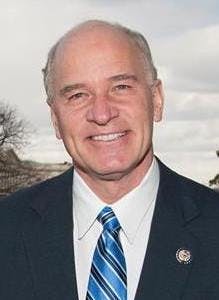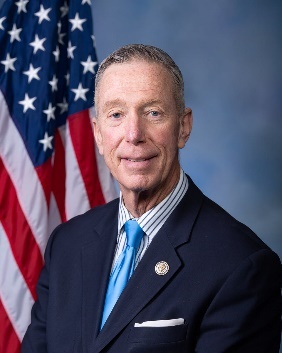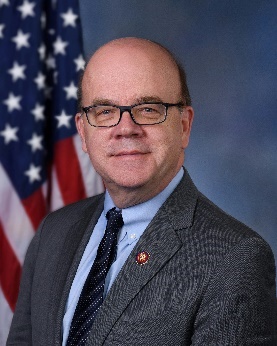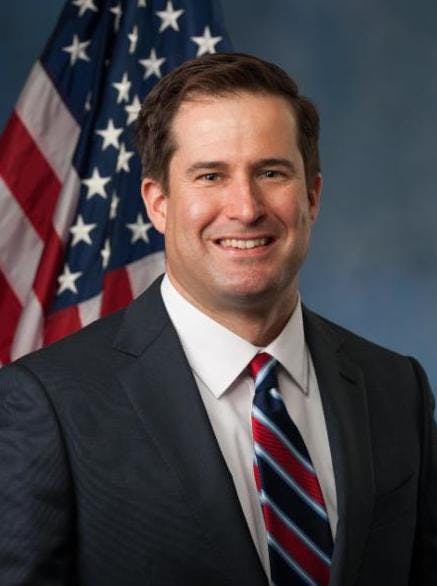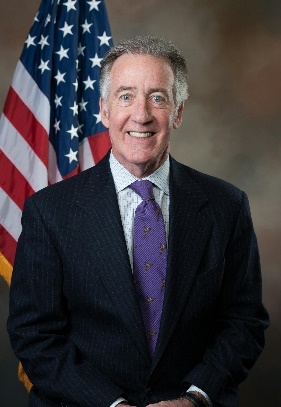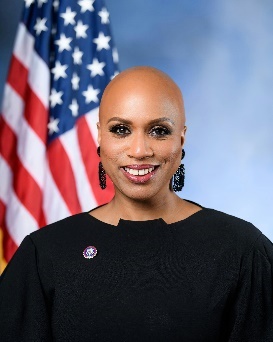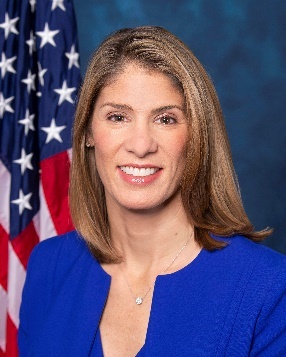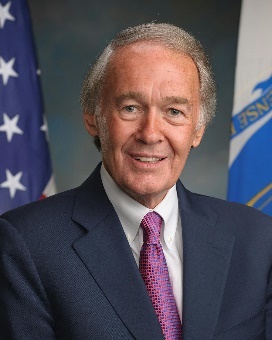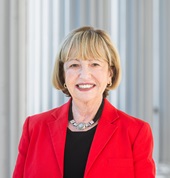A resource from the BBA summarizing each Massachusetts legislator's stance on blockchain and digital assets, and promoting the development of responsible frameworks for the industry.

With our leading academic research institutions, highly educated workforce, and commitment to emerging technologies, Massachusetts is well-positioned to become a leader in blockchain and digital assets.
This will only happen with the support of Massachusetts legislators.
Today, blockchain development is limited by the unpredictable and unrelated laws used to regulate financial securities: the SEC currently applies The Securities Act of 1933, written almost 100 years ago!
To have a proper regulatory environment that supports both innovation and entrepreneurship while still providing consumer protection, our lawmakers must understand blockchain technology. (It’s hard to build the next unicorn if you are worried the SEC might sue you later.)
For over five years, the BBA has been focused on helping leaders and firms build their blockchain products and businesses in the “right way.” But this can only happen with regulatory clarity around the “right way” to build these new businesses.
To that end, we are focused on engaging and collaborating with our local lawmakers toward the shared goals of encouraging innovation while protecting investors. We have consistently worked to educate, collaborate, and advocate with legislators, to help create better laws around blockchain and digital assets. With clarity comes prosperity.
In 2024, in our ongoing effort to provide blockchain education, we created this report for the citizens and business leaders of Massachusetts to:
- learn about past and present blockchain legislation, at the state and federal level
- identify which Massachusetts legislators are currently supporting blockchain legislation
- provide feedback to legislators that blockchain issues are important to them and vital to the success of the Bay State
Additionally, by participating in this report, Massachusetts legislators will:
- build an awareness for the blockchain educational resources available on the BBA website by sharing with their colleagues
- make connections between like-minded individuals at the state and federal levels and strengthen connections with their constituents
- open dialogue with the Boston blockchain community on how to create good legislation around blockchain and digital assets
If we get it right, Massachusetts can have an outsized impact on this emerging industry throughout New England and the United States, attracting good jobs and good people to the Bay State.
Remember, blockchain is ultimately about people—not only the people who build, fund, and create jobs with this technology, but also the people who can create a pro-blockchain environment for these projects to thrive.
Here are those people. We encourage you to get to know them.
Quick Links
Massachusetts Representatives
For this report, we have included all nine U.S. Representatives and both U.S. Senators from Massachusetts. All legislators are presented in alphabetical order.
As mentioned, the BBA will continue to invite our Massachusetts lawmakers to engage with us and our community to help develop responsible frameworks for the fast-growing blockchain technology industry.
Federal House Bills
In evaluating the nine congressional representatives, we looked at three key bills related to blockchain and digital assets:
- The Financial Innovation and Technology for the 21st Century Act (FIT 21)
- The House Joint Resolution to overturn the SEC Staff Accounting Bulletin (SAB 121)
- The CBDC Anti-Surveillance State Act (HR 5403)
FIT 21
FIT 21 is significant for three reasons:
- Regulatory Clarity: It clarifies whether the Securities & Exchange Commission (SEC) or the Commodity Futures Trading Commission (CFTC) will regulate digital assets
- Balancing Consumer Protection with Promoting Innovation: New blockchain projects now have a path that they can follow for compliance as they prepare to launch
- U.S. Competitiveness: Creating a friendly and supportive environment to halt the exodus of top crypto talent, projects, and capital moving overseas
The results of the voting on FIT 21 (HR 4763) were:
| Party | For | Against | Not Voting |
|---|---|---|---|
| Republicans | 208 | 3 | 6 |
| Democrats | 71 | 133 | 9 |
FIT 21 clearly had bipartisan support. Not only were three of the bill’s eleven co-sponsors Democrats, but also about 1/3 of Democrat House members voted for it.
SAB 121 Repeal
SAB 121, issued by the SEC, required companies to disclose significant risks related to holding crypto assets for others. The repeal of SAB 121 removes this requirement, aiming to reduce regulatory burdens on crypto custody providers, and allow them to innovate more quickly.
The repeal of SAB 121 was passed by the house on May 8, 2024 by a vote of 228 to 182, with 19 not voting. This bipartisan bill was sponsored by a Republican with two Republican co-sponsors and two Democrat co-sponsors.
| Party | For | Against | Not Voting |
|---|---|---|---|
| Republicans | 207 | 0 | 4 |
| Democrats | 21 | 182 | 10 |
The rationale for overturning SAB 121 was that it was issued without public notice or comment, and with none of the confirmed SEC commissioners voting on the rule.
HR 5403
As a government-controlled programmable money, a Central Bank Digital Currency (CBDC) could enable a government to monitor all the transactions of its citizens. The CBDC Anti-Surveillance Act would prevent the Federal Reserve from offering certain products or services directly to an individual (e.g., a retail CBDC), and would prevent the use of a CBDC for monetary policy.
While this would be great for preventing criminal activity, there are other concerns -- such as those expressed by U.S. Rep Tom Emmer -- that it could be used by the government as a weapon to “choke out politically unpopular activity.”
HR 5403 passed by a vote of 216 to 192 with 22 not voting. Unlike the other two bills, which had significant bipartisan support, this bill had no Democrat co-sponsors, and the voting fell closely along party lines.
| Party | For | Against | Not Voting |
|---|---|---|---|
| Republicans | 213 | 0 | 4 |
| Democrats | 3 | 192 | 18 |
If you want to see how your U.S. Representative voted on these bills, you can find the results on the independent Stand with Crypto website (a separate 501(c)(4) nonprofit organization backed by Coinbase).
If you’re interested in how your legislator voted on a particular bill, you can find their votes on the official congressional voting record.
Representatives and Ratings
Congressman Jake Auchincloss
District: 4th
Party: Democrat
Phone: (617) 332-3333
Committees:
- Committee on Transportation and Infrastructure
- Select Committee on Strategic Competition between the United States and China
Votes on Relevant Bills:
- YES: FIT 21
- YES: SAB 121 House Joint Resolution
- NO: CBDC Anti-Surveillance State Act
Support for Blockchain and Digital Assets: Very Supportive
Notable Statements: Jake has made 16 statements about crypto:
“CBDCs are controversial, but we should all agree that the Fed and Treasury can’t issue one without explicit authorization.” - May 18, 2023 on X
“As we build back better, we must ensure appropriate taxation and regulation of the cryptocurrency industry.” - Nov 17, 2021 on X
“The best thing congress can do to promote Web3 is to designate a primary regulator to audit stablecoins.” - Dec 9, 2021 on X
BBA Analysis: Auchincloss has been a longtime proponent of the blockchain industry, having made numerous statements going back to 2021 that were very supportive, on topics ranging from CBDCs to taxation and regulation.
Although he did vote against the CBDC Anti-Surveillance Act, he has called for bipartisan support to prevent the Federal Reserve from implementing a CBDC without congressional approval by sponsoring the Power of the Mint Act (HR 3402). This would allow for ongoing research into CBDCs without concerns about the Federal Reserve implementing it unilaterally.
If you are a resident of the 4th district and would like to share your opinions with Congressman Auchincloss in a respectful manner, we encourage you to do so here on his website.
Congresswoman Katherine Clark (Minority Whip)
District: 5th
Party: Democrat
Phone: (617) 354-0292
Committees:
- Highest ranking woman in congressional leadership
- No current committee assignments
Votes on Relevant Bills:
- YES: FIT 21
- NO: SAB 121 House Joint Resolution
- NO: CBDC Anti-Surveillance State Act
Support for Blockchain and Digital Assets: Supportive
Notable Statements: None
BBA Analysis: Although we appreciate her support of FIT 21, given her votes on the other two bills and a lack of any prior statements about blockchain, we believe she is likely supportive.
If you are a resident of the 5th district and would like to share your opinions with Congresswoman Clark in a respectful manner, we encourage you to do so here on her website.
Congressman Bill Keating
District: 9th
Party: Democrat
Phone: (202) 225-3111 (D.C. Office)
Committees:
- Foreign Affairs
- Armed Services
Votes on Relevant Bills:
- NO: FIT 21
- NO: SAB 121 House Joint Resolution
- NO: CBDC Anti-Surveillance State Act
Support for Blockchain and Digital Assets: None to date
Notable Statements: None
BBA Analysis: Bill holds no committee or subcommittee assignments directly related to blockchain. We have no additional insights concerning his position on digital assets.
If you are a resident of the 9th district and would like to share your opinions with Congressman Keating in a respectful manner, we encourage you to do so here on his website.
Congressman Stephen Lynch
District: 4th
Party: Democrat
Phone: (617) 428-2000
Committees:
- Financial Services: Ranking Member subcommittee on Digital Assets, Financial Technology, and Inclusion
- Oversight and Accountability: Subcommittee on Cybersecurity, Information Technology, and Government Innovation
- Select Subcommittee on the Weaponization of the Federal Government
- Bi-partisan working group on Artificial Intelligence
Votes on Relevant Bills:
- NO: FIT 21
- NO: SAB 121 House Joint Resolution
- NO: CBDC Anti-Surveillance State Act
Support for Blockchain and Digital Assets: Mixed
Notable Statements: Congressman Lynch has made 17 according to Stand with Crypto:
“As a digital payment and currency technologies rapidly expand worldwide, it is critical the U.S. remains a world leader in the development and regulation of digital currency and other digital assets.” – March 28, 2022 on X (note: this comment was rated Very Supportive)
“There are currently 130 countries studying government backed digital currencies, and this amendment would prevent the United States from researching and gaining a thorough understanding of the architecture and implementation of a CBDC, putting us behind 90% of the world.” – November 9th 2023 on X (note: this comment was rated Neutral)
“Yesterday the Financial Services Committee marked up the FIT 21 Act, which unfortunately is a dangerously inept attempt to regulate digital assets market structure. This piece of legislation strips consumer and investor protections, makes reckless changes to established securities law, and injects confusion rather than clarity into our regulatory framework.” July 27, 2023 on Facebook (note: this comment was rated Strongly Opposed)
BBA Analysis: Despite his current rating and voting record, Lynch did introduce H.R. 5410: The ECASH Act, which stands for Electronic Currency and Secure Hardware. The purpose of this act is to direct the Secretary of the Treasury to develop and pilot digital dollar technologies that replicate the privacy-respecting features of physical cash. Although a digital dollar raises similar concerns to those of CBDCs, there is an emphasis on protecting privacy, which should allay the concerns of the government using a digital currency to surveil its citizens.
Whereas many legislators feel that research into a CBDC will lead to the implementation of CBDCs and a resulting surveillance state and loss of privacy and freedom, Representative Lynch feels that research into the technology is still a positive. Some blockchain thought leaders believe that if we don’t do this, other countries will, and they will likely be a tool for surveillance. A U.S. version would be more likely to have privacy-protecting features built into it.
Lynch’s support for the industry, therefore, appears to be mixed. Given his position as ranking member on the Subcommittee for Digital Assets, Financial Technology, and Inclusion, he could potentially become an advocate for blockchain as he sees the importance of the U.S. leading in this technology as opposed to banning it.
If you are a resident of the 8th district and would like to share your opinions with Congressman Lynch in a respectful manner, we encourage you to do so here on his website.
Congressman Jim McGovern
District: 2nd
Party: Democrat
Phone: (202) 225-6101 (D.C. Office)
Committees:
- Agriculture
- Rules
Votes on Relevant Bills:
- NO: FIT 21
- NO: SAB 121 House Joint Resolution
- NO: CBDC Anti-Surveillance State Act
Support for Blockchain and Digital Assets: Neutral
Notable Statements: None
BBA Analysis: Jim holds no committee or subcommittee assignments directly related to blockchain. Apart from the votes above, we have no additional insights concerning his position on digital assets.
If you are a resident of the 2nd district and would like to share your opinions with Congressman McGovern in a respectful manner, we encourage you to do so here on his website.
Congressman Seth Moulton
District: 6th
Party: Democrat
Phone: (978) 531-1669
Committees:
- Armed Services: Subcommittee on Cyber, Innovation Technology, and Info Systems
- Transportation and Infrastructure
- Select Committee on Strategic Competition between the United States and China
Votes on Relevant Bills:
- YES: FIT 21
- YES: SAB 121 House Joint Resolution
- NO: CBDC Anti-Surveillance State Act
Support for Blockchain and Digital Assets: Very Supportive
Notable Statements: None at this time
BBA Analysis: Given China’s lead on many aspects of blockchain technology, Seth’s military background and support of digital assets will enhance the value he brings to committees focused on competition, defense, and cybersecurity. Contact Congressman Moulton on his website.
Congressman Richard Neal
District: 1st
Party: Democrat
Phone: (202) 225-5601 (D.C. Office)
Committees:
- Chair, Ways and Means
- Joint Committee on Taxation
Votes on Relevant Bills:
- NO: FIT 21
- NO: SAB 121 House Joint Resolution
- NO: CBDC Anti-Surveillance State Act
Support for Blockchain and Digital Assets: None to date
Notable Statements: None
BBA Analysis: Richie holds no committee or subcommittee assignments directly related to blockchain. Aside from the votes above, we have no additional insights concerning his position on digital assets.
If you are a resident of the 2nd district and would like to share your opinions with Congressman Neal in a respectful manner, we encourage you to do so here on his website.
Congresswoman Ayanna Pressley
District: 7th
Party: Democrat
Phone: (617) 857-0040
Committees:
- Financial Services: Subcommittee on Financial Services and Monetary Policy
- Oversight and Accountability: Subcommittee on Cybersecurity, Info Technology, and Government Innovation
Votes on Relevant Bills:
- NO: FIT 21
- NO: SAB 121 House Joint Resolution
- NO: CBDC Anti-Surveillance State Act
Support for Blockchain and Digital Assets: None to date
Notable Statements: Congresswoman Pressley has made two, per Stand with Crypto:
“Why should we trust the Fed to create a CBDC when it has taken the Fed so long to....” – May 26, 2022 on X (note: this statement was rated as Neutral)
BBA Analysis: While she has not shown support for the blockchain industry to date, given that she serves on two relevant subcommittees and has expressed prior concerns about the Fed creating a CBDC, we believe she could become a strong advocate.
If you are a resident of the 7th district and would like to share your opinions with Congresswoman Pressley in a respectful manner, we encourage you to do so here on her website.
Congresswoman Lori Trahan
District: 3rd
Party: Democrat
Phone: (978) 459-0101 (D.C. Office)
Committees:
- Energy and Commerce: Subcommittee on Innovation, Data, and Commerce
- House Democratic Leadership, Senior Whip
Votes on Relevant Bills:
- NO: FIT 21
- NO: SAB 121 House Joint Resolution
- NO: CBDC Anti-Surveillance State Act
Support for Blockchain and Digital Assets: None to date
Notable Statements: None
BBA Analysis: Beyond the votes above, we have no additional insights concerning her position on digital assets. With a focus on climate and consumer protection, we hope that she would be willing to consider alternative positions in which blockchain technology is a proponent for both issues.
If you are a resident of the 3rd district and would like to share your opinions with Congresswoman Trahan in a respectful manner, we encourage you to do so here on her website.
Massachusetts Senators
Federal Senate Bills
In evaluating the two Senators, we looked at three pieces of Senate legislation:
- The resolution to repeal SAB 121 (HJR-109)
- The Digital Asset Anti-Money Laundering Act of 2023 (S-2669)
- The Crypto-Asset Environmental Transparency Act (S-661)
Senate SAB 121 Repeal
After the aforementioned SAB 121 repeal passed the House, it then moved to the Senate. It was approved in the Senate by a vote of 60-38-2, with the support of prominent Democrats such as Majority Leader Chuck Schumer.
Despite this bipartisan support, on June 3rd President Biden vetoed this House Joint Resolution.
The Digital Asset Anti-Money Laundering Act
S-2669 is deceptively named. Preventing money laundering is something that we strongly support; however, this bill would in essence “kill crypto” because the time and financial constraints are so cost-prohibitive, they would essentially render it unusable.
This bill had one Independent and two Republican co-sponsors to go along with 17 Democrat co-sponsors. Hearings were most recently held February 01, 2024 by the Senate Committee on Banking, Housing, and Urban Affairs.
For a more in-depth understanding of S-2669, you may read this analysis by the Digital Chamber.
The Crypto-Asset Environmental Transparency Act
S-661 establishes greenhouse gas emission reporting and related requirements by the Environmental Protection Agency for certain digital asset mining operations, such as facilities using more than 5 megawatts of electricity to mine bitcoin. These facilities must also prove that they have valid and current permits to operate under the Clean Air Act.
Further, under the Energy Independence Act of 2007, data centers would now consist of any crypto mining operations using two or more computers. In March of 2023, it was referred to the Committee on Environment and Public Works. No further action has been taken. A virtually identical bill was introduced in the House two days later and was referred to the House Committee on Energy and Commerce.
Asking crypto miners to adhere to environmental regulations is not inherently anti-blockchain, if those regulations are not stricter than they are for other industries, and they are not exceedingly time- and cost-prohibitive.
This act would require the EPA to investigate these issues to establish those requirements. On the basis of public comments made by its sponsor, this bill is concerning, but since we do not yet know what those requirements would be, it may be too early to render an opinion.
Senators and Ratings
Senator Ed Markey
Party: Democrat
Phone: (617) 565-8519
Committees:
- Commerce, Science, and Transportation
- The Environment and Public Works
- Health, Education, Labor, and Pensions
- Small Business and Entrepreneurship
Votes on Relevant Bills:
- NO: SAB 121 House Joint Resolution
- Sponsored – Crypto-Asset Environmental Transparency Act
Support for Blockchain and Digital Assets: None to date
Notable Statements: Senator Markey has made 9 statements according to Stand with Crypto:
“Texas cryptominers are burning fossil fuels, making millions in subsidies, and leaving Texans to struggle with an unreliable grid on the brink of collapse.” – October 13, 2022 on X
“Cryptomining’s extravagant electricity use is straining our grid, driving up prices, and harming our climate. We need to push the industry away from this extreme energy waste.” – May 3, 2023
BBA Analysis: Senator Markey was originally interested in other potential benefits of blockchain technology. Also, he was not a co-sponsor on S-2669.
We hope that he will keep an open mind and consider watching documentaries like “Dirty Coin” in which environmentally conscious filmmakers set out to expose the damaging impact of crypto mining, only to learn that crypto was in fact balancing the grid and supporting energy efficiency.
If you would like to share your opinions with Senator Markey in a respectful manner, we encourage you to do so here on his website.
Senator Elizabeth Warren
Party: Democrat
Phone: (617) 563-3170
Committees:
- Banking, Housing, and Urban Affairs: Chair, Economic Policy
- Banking, Housing, and Urban Affairs: Subcommittee on Financial Institutions and Consumer Protection
- Banking, Housing, and Urban Affairs: Subcommittee on Securities, Insurance, and Investment
- Finance
- Special Committee on Aging
- Armed Services
Votes on Relevant Bills:
- NO: SAB 121 House Joint Resolution
- Sponsored – Digital Asset Anti-Money Laundering Act of 2023
Support for Blockchain and Digital Assets: Opposed
Notable Statements: Senator Warren has 83 statements according to Stand with Crypto:
“The SEC is wrong on the law and wrong on the policy with respect to the Bitcoin ETF decision. If the SEC is going to let crypto burrow even deeper into our financial system, then it’s more urgent than ever that crypto follow basic ant-money laundering rules.” – January 11, 2024 on X
“Hamas raised millions via crypto in the months leading up to their attack on Israel.” – October 18, 2023 on X (note: this statement was proven to be false)
“Bitcoin Miners are increasing energy bills for millions of American Families while enriching crypto executives --- and causing as much pollution as an additional 3.5 million gas-powered cars.” - April 17, 2023 on X
BBA Analysis: Warren is widely considered to be one of the Senate members most opposed to the industry. Not only has she attacked the industry in a variety of forms, but she has also made misleading claims to support her views.
We appreciate the Senator’s history of service and hope she will consider exploring how blockchain technology aligns with the principles she supports, such as democratization of the financial system, access to financial services, and banking transparency.
If you would like to share your opinions with Senator Warren in a respectful manner, we encourage you to do so here on her website.
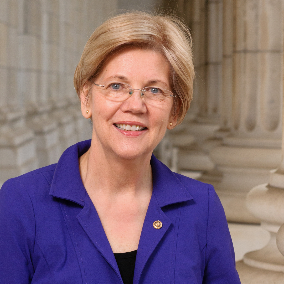
The History of Blockchain Legislation in Massachusetts
A legislative session is a period in which a legislature is convened for the purposes of lawmaking. The Massachusetts state legislature sits in biennial sessions (meaning they last for two years), starting the first Wednesday in January in odd-numbered years.
191st Session (2019 – 2020)
Senate Bill 200 was introduced in January 2019 by Massachusetts State Senators Cynthia Stone Creem, Eric P. Lesser, and State Representative Tommy Vitolo for legislation relative to blockchain and cryptocurrencies, specifically, calling for the establishment of a 15-member commission to investigate/study these emerging technologies. After being referred to the Committee on Economic Development and Emerging Technologies, in August 2020, S200 was last referred to the Joint Committee on the Rules of the Two Branches, acting concurrently. No further action was taken in January of 2021.
In May 2019, Massachusetts State Representative Andres X. Vargas and State Senator Harriette L. Chandler jointly presented House Bill 3763 to establish a 7-member committee to implement a pilot program to provide convenient voting for military personnel, their families, and civilians stationed or working abroad. The goal is to show how smart phone technology combined with a secure and immutable storage of returned ballots can improve voter engagement, convenience, and security. H3763 was referred to the Committee on Election Laws. In February 2020, it was accompanied by a study order H4403.
192nd Session (2021 - 2022)
In March 2021, Massachusetts State Representative Kate Lipper-Garabedian introduced House Bill 126 to establish a 20-member special commission on blockchain and cryptocurrency in Massachusetts, with the goal of positioning the Commonwealth to be a leader in this new technology. Specifically, the group will develop a master plan for fostering the appropriate expansion of blockchain technology and the cryptocurrency industry in the Commonwealth.
After being assigned to the Joint Commission on Advanced Information, Technology, Internet, and Cybersecurity in March 2021, H126 was later redrafted and reintroduced as House Bill 4513 in March 2022. Later that same month, H4513 was referred to the committee on Rules of the Two Branches, acting concurrently, and subsequently referred to the committee on House Ways and Means. No further action was taken in January 2023.
House Bill 4922 was introduced in June of 2022 by Representatives Josh Cutler and Kate Lipper-Garabedian as an act relative to education and workforce training specializing in blockchain technology. After being referred in succession through the committees on House Rules, Labor, and Workforce Development, and House Ways and Means, no further action was taken in January 2023.
193rd Session (2023 – Present)
Senate Bill 29: Introduced by Senator Barry Finegold, S29 is an act establishing a special commission on blockchain and cryptocurrency. After being referred to the committee on Advanced Information Technology, Internet, and Cybersecurity in February of 2023, it was later ruled on favorably and referred to the committee on Rules of the Two Branches, acting concurrently, in February 2024. Then in March 2024, it was referred to the committee on Senate Ways and Means.
House Bill 69: Introduced by Representatives Kate Lipper-Garabedian and Josh Cutler (no longer in office), H69 is an act establishing a special commission on blockchain and cryptocurrency. After being referred to the committee on Advanced Information Technology, Internet, and Cybersecurity in February 2023, it was later ruled on favorably and referred to the committee on Rules of the Two Branches, acting concurrently, in February 2024. Then in March of 2024, it was discharged to the Committee on House Rules.
House Bill 70: Introduced by Representatives Kate Lipper-Garabedian, Josh Cutler, and Thomas Stanley, H70 is an act providing for consumer protection in a digital economy. Specifically, this act would require the Office of the State Treasurer to develop and periodically review and update a digital module and resources on cryptocurrencies and digital assets. In February of 2023, it was referred to the committee on Advanced Information Technology, Internet, and Cybersecurity. It was later accompanied by a study order, H4578.
House Bill 71: Introduced by Representatives Kate Lipper-Garabedian and Thomas Stanley, H71 is an act to create a pilot program to explore digital innovation in government using blockchain technology. In February 2023, it was referred to the committee on Advanced Information Technology, Internet and Cybersecurity, and in May 2024, accompanied a study order, H4578.
House Bill 1851: Building on HB4922 from the 192nd session, Representatives Cutler and Garabedian (re)introduced H1851 as an act relative to workforce training and education specializing in uses of blockchain technology. Like its predecessor, it was referred to the committee on Labor and Workforce Development and as of February 2024 to the committee on House Ways and Means.
How to Support Your Representatives
Here is a list of Massachusetts legislators who have sponsored or co-sponsored legislation, with details on how to reach out and lend your support. (All legislators are presented in alphabetical order.)
Representative Kate Lipper-Garabedian
District: 32nd Middlesex
Party: Democrat
Email: [email protected]
Phone: (617) 722-2810
Committees:
- Vice Chair, Joint Committee on Elder Affairs
- House Committee on Ways and Means
- Joint Committee on Financial Services
- Joint Committee on Telecommunications, Utilities and Energy
- Joint Committee on Ways and Means
Relevant Bills: Sponsored House Bill 126, House Bill 4922, House Bill 4513, House Bill 69, House Bill 70, House Bill 71, House Bill 1851
BBA Analysis: By far the most prolific legislator and advocate for blockchain technology in the Massachusetts Legislature, Kate has been an active participant in many previous Boston Blockchain Association events. She has been a past participant in panels at Boston Fintech Week, and she helped to vet the Massachusetts Legislator’s Toolkit for Blockchain Technology.
Representative Bradley H. Jones (Minority Leader)
District: 20th Middlesex
Party: Republican
Email: [email protected]
Phone: (617) 722-2100
Committees:
- Ranking Minority, Joint Committee on Telecommunications, Utilities and Energy
- Joint Committee on Election Laws
Relevant Bills: House Bill 69, Senate Bill 29
BBA Analysis: We believe bipartisan support is essential to create meaningful legislation, and it is good to see the Massachusetts Republican House Minority Leader providing blockchain support.
Representative Thomas M. Stanley
District: 9th Middlesex
Party: Democrat
Email: [email protected]
Phone: (617) 722-2810
Committees:
- Chairperson, Joint Committee on Elder Affairs
Relevant Bills: Co-Sponsor House Bill 69, House Bill 70, House Bill 71
BBA Analysis: As Thomas works closely with Kate on three important issues, we hope that he continues to build his blockchain knowledge and advocate for its implementation.
Representative Andres X. Vargas
District: 3rd Essex
Party: Democrat
Email: [email protected]
Phone: (617) 722-2379
Committees:
- Vice Chair, Joint Committee on Economic Development and Emerging Technologies
- House Committee on Ways and Means
- Joint Committee on Education
- Joint Committee on Public Health
- Joint Committee on Ways and Means
Relevant Bills: House Bill 3763, House Bill 4513
BBA Analysis: Vargas was active in both the 191st and 192nd sessions, which should prove beneficial to his work with emerging technologies.
Representative Tommy Vitolo
District: 15th Norfolk
Party: Democrat
Email: [email protected]
Phone: (617) 722-2220
Committees:
- Vice Chair, Joint Committee on Election Laws
- House Committee on Steering, Policy and Scheduling
- Joint Committee on Elder Affairs
- Joint Committee on Tourism, Arts and Cultural Development
Relevant Bills: Sponsored Senate Bill 200
BBA Analysis: Not currently serving on any blockchain relevant committees.
How to Support Your Senators
Senator Cynthia Stone Creem (Majority Leader)
District: Norfolk & Middlesex
Party: Democrat
Email: [email protected]
Phone: (617) 722-1639
Committees:
- Chairperson, Senate Committee on Global Warming and Climate Change
- Vice Chair, Senate Committee on Ethics
- Vice Chair, Senate Committee on Juvenile and Emerging Adult Justice
- Senate Committee on Post Audit and Oversight
- Joint Committee on Election Laws
- Joint Committee on the Judiciary
Relevant Bills: Sponsored Senate Bill 200
BBA Analysis: Having the Senate Majority Leader as an early advocate for blockchain technology is of significant benefit. Let’s hope this support and interest continues.
Senator Barry Finegold
District: Second Essex and Middlesex
Party: Democrat
Email: [email protected]
Phone: (617) 722 1612
Committees:
- Chairperson, Joint Committee on Economic Development and Emerging Technologies
- Vice Chair, Senate Committee on Intergovernmental Affairs
- Senate Committee on Post Audit and Oversight
- Senate Committee on the Census
- Joint Committee on Advanced Information Technology, the Internet and Cybersecurity
- Joint Committee on Telecommunications, Utilities and Energy
Relevant Bills: Sponsored Senate Bill 29
BBA Analysis: Having advocates for the same bill in both chambers increases the likelihood of a bill eventually passing. It would be great if Barry and Kate continue to collaborate in the future.
Senator Susan L. Moran
District: Plymouth and Barnstable
Party: Democrat
Email: [email protected]
Phone: (617) 722-1330
Committees:
- Chairperson, Joint Committee on Revenue
- Vice Chair, Joint Committee on Consumer Protection and Professional Licensure
- Joint Committee on Cannabis Policy
- Joint Committee on Economic Development and Emerging Technologies
- Joint Committee on Financial Services
- Joint Committee on Tourism, Arts and Cultural Development
- Joint Committee on Transportation
Relevant Bills: Co-sponsored Senate Bill 29, House Bill 69, House Bill 4513
BBA Analysis: Representative Moran has been active on blockchain legislation for four years. This continuity is beneficial to the Emerging Technologies Committee.
Key Takeaways
- We’re making progress: Blockchain legislation, consistent with the recommendations of the Massachusetts Legislator’s Toolkit for Blockchain Technology, is being introduced in your legislature.
- Keep reaching out: Persistence and continuity are essential to legislative success, as evidenced by similar legislation being reintroduced in successive sessions, such as blockchain working groups, pilot programs, and workforce development initiatives.
- Spread the word: The number of supporting legislators needs to grow in order to push this legislation through committees, so that they may eventually become law and Massachusetts can continue to lead in innovation and technology.
In short, support your Senators and Representatives, especially those who are helping move the blockchain industry forward. Support their campaigns and support their efforts. They are the ones helping make Massachusetts a global hub for blockchain technology.
